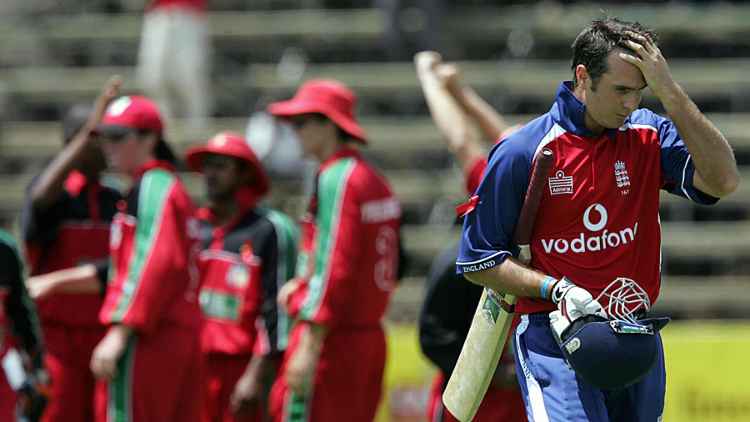
Importance of counties' Zimbabwe tours 'cannot be overstated' - Hamilton Masakadza
by Matt RollerDerbyshire and Durham will become the first major English teams to travel to Zimbabwe since 2004 next month, with both sides accepting invitations from Zimbabwe Cricket (ZC) to go to the country for pre-season tours.
England have not played an international fixture against Zimbabwe since 2007, and ZC's director of cricket Hamilton Masakadza claimed that the importance of the counties' pre-season visits "cannot be overemphasised".
ALSO READ: 'Smaller teams want to play more but the cash isn't there' - Alistair Campbell
Derbyshire, whose head coach Dave Houghton played 22 Tests and 63 ODIs for Zimbabwe between 1983 and 1997, will play two T20s, two one-day games and two three-day games against a Zimbabwe Select XI, while Durham will play two three-day fixtures against a ZC Chairman's XI.
"Hopefully this tour will open the door for further English county tours in future, which may help Zimbabwe cricket get back on its feet," Houghton said. "We will be facing some strong opposition during the tour, which will provide ideal preparation for the 2020 season.
"We also want to give the players some life experiences because as cricketers, we can become solely focused on the game sometimes and it's important make the most of these opportunities."
No county team has visited Zimbabwe since Worcestershire in 1997, and Masakadza said that ZC were "thrilled to be hosting Derbyshire and Durham".
"The magnitude and importance of their visit cannot be overemphasised," he said. "While our players will learn big lessons and gain invaluable experience from playing against such top opposition, we believe this marks the beginning of a new chapter that will hopefully see more English county teams touring Zimbabwe as that will go a long way in preparing our players for the rigours of high-level and international cricket."
Relations between the United Kingdom and Zimbabwe deteriorated significantly during Robert Mugabe's presidency, primarily due to consistent human rights abuses, leading to several high-profile cricketing disputes.
In 2003, England decided to pull out of their scheduled World Cup game in Harare following death threats, though decided to fulfil an ODI series in the country a year later despite opposition from the British government.

The teams played one another at the World T20 in 2007 but a year later Andy Burnham, the minister for culture, media and sport wrote to the ECB to instruct them to cancel a tour by Zimbabwe to England scheduled for 2009, and Zimbabwe pulled out of the World T20 weeks later after being informed that their players may not be granted visas.
Since Mugabe was removed from power following a successful coup in November 2017, relations between the UK and Zimbabwe have improved significantly. The UK's Africa minister Rory Stewart visited the country soon after Mugabe's fall from power, with a foreign ministry spokesperson describing relations as "cordial" last month.
Whether the tours have any wider significance in paving the way for England to travel to Zimbabwe remains to be seen. The ECB declined to comment on the developments, and there are no fixtures scheduled between the two sides in the current cycle of the Future Tours Programme, which runs until the end of 2023.
Zimbabwe will not compete in the T20 World Cup in October, having had their ICC membership suspended due to political inference soon before the qualifying tournament, and the teams were not drawn to play one another in the 2020-22 ODI Super League.
Zimbabwe's players were recently forced to take a pay cut, while several games in the Logan Cup, the domestic first-class competition, were postponed without notice.